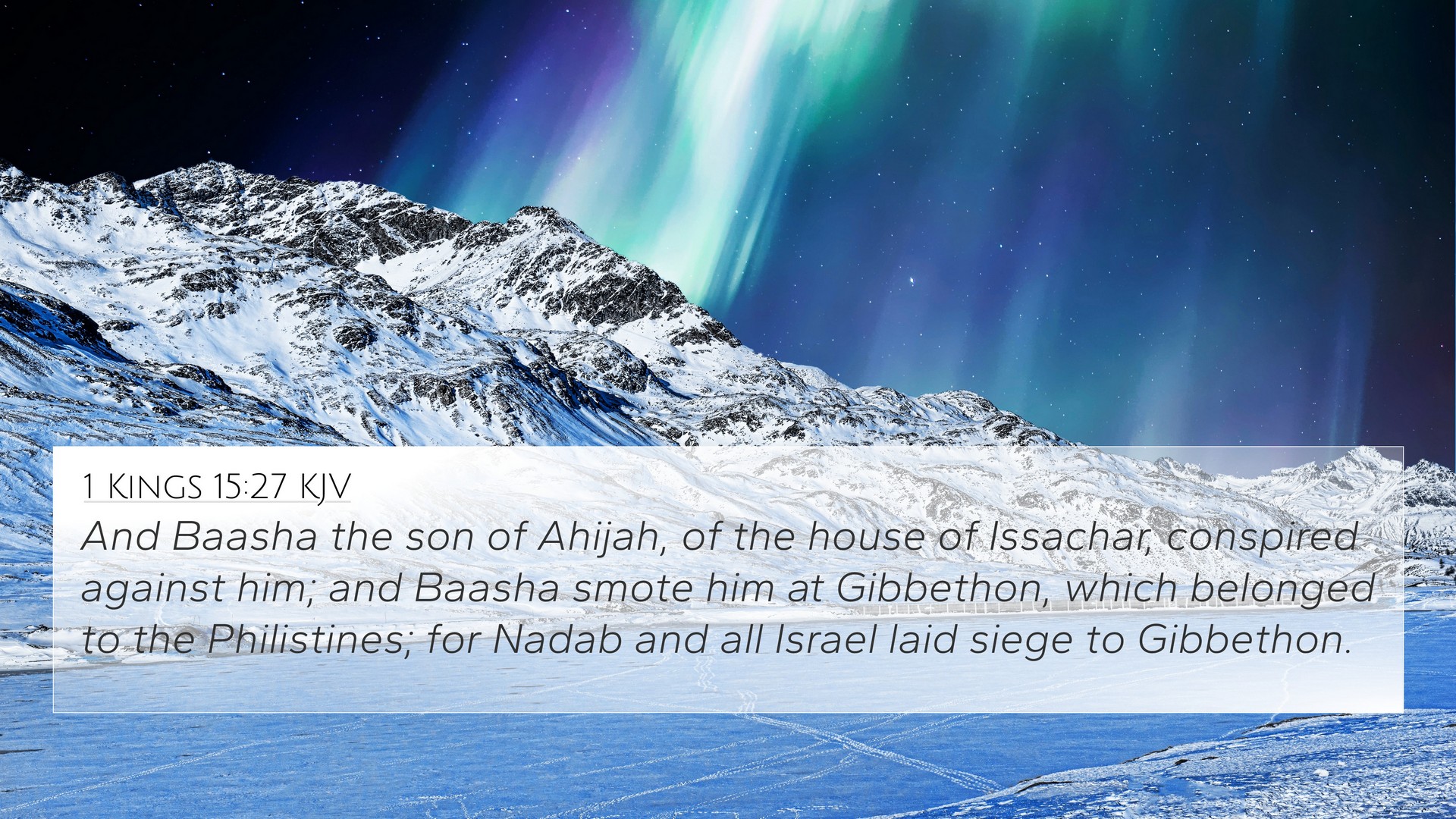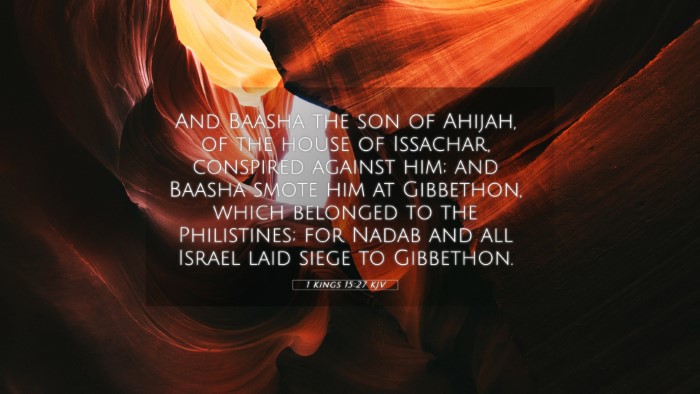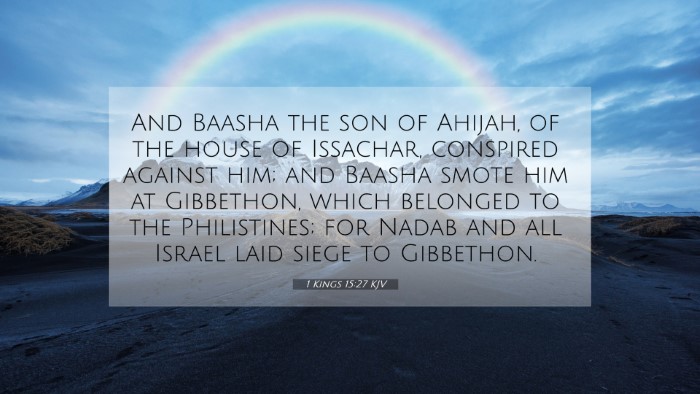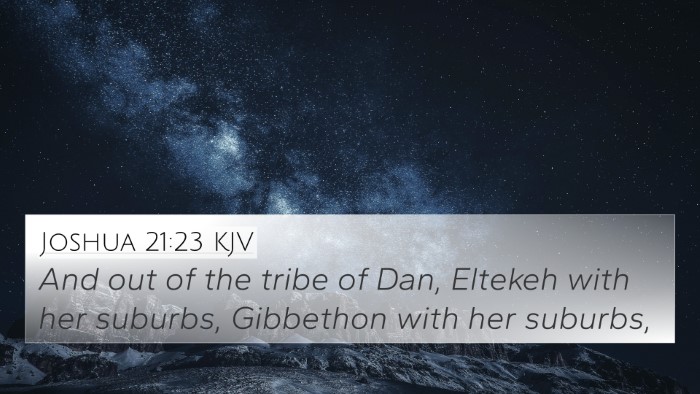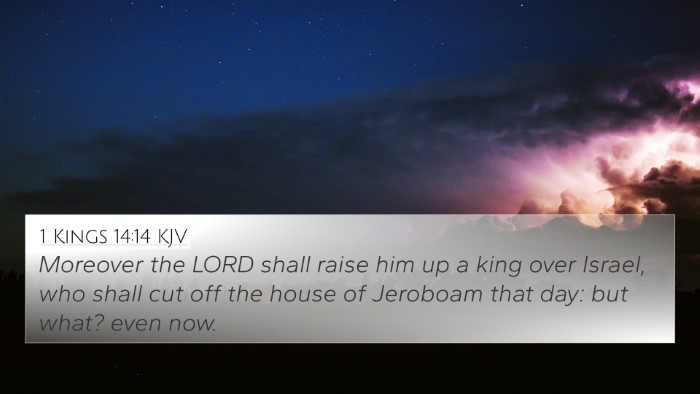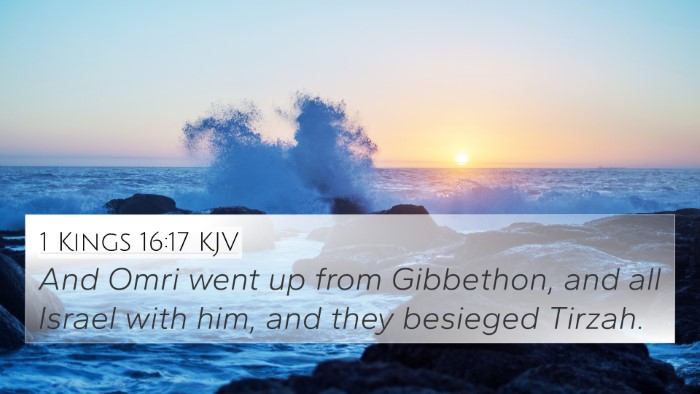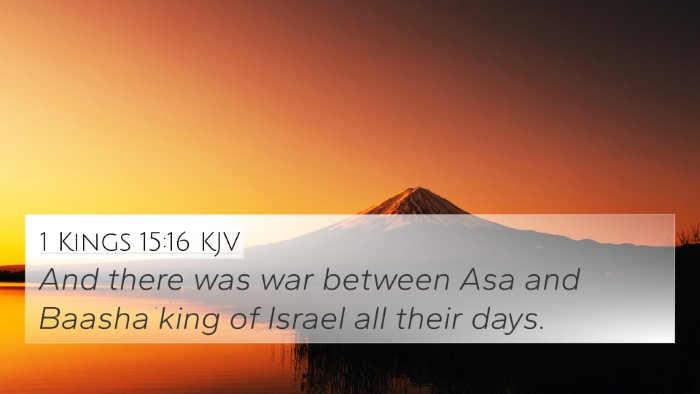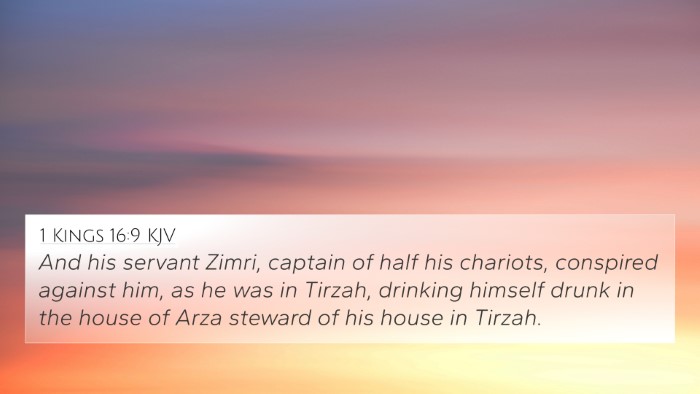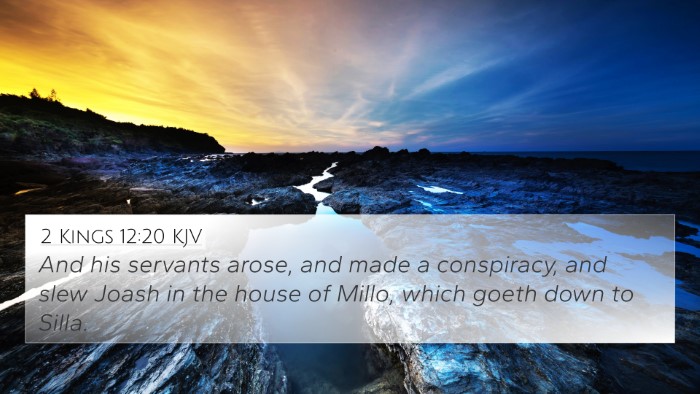Understanding 1 Kings 15:27
1 Kings 15:27 states, "And Baasha the son of Ahijah, of the house of Issachar, conspired against him; and Baasha smote him at Gibbethon, which belonged to the Philistines: for Nadab and all Israel laid siege to Gibbethon." This verse marks a significant political shift in the history of Israel, highlighting themes of conspiracy, conflict, and political strength.
Verse Meaning and Context
This verse occurs during a tumultuous time in Israel's history when there was considerable strife among the kings. Nadab, King of Israel, was the son of Jeroboam, and Baasha rose against him, indicating a coup that reflects the unstable reign in Israel. The mention of Gibbethon, a city previously taken by the Philistines, signifies the ongoing warfare and the complex dynamics between Israel and its enemies.
Commentary Insights
- Matthew Henry's Commentary: He emphasizes the treachery involved in Baasha's rise to power. Baasha's revolt against Nadab can be interpreted as a part of God's plan to bring down Jeroboam's house because of the sins committed there. Henry discusses the enduring consequences of idolatry and the instability it brings upon the monarchy of Israel.
- Albert Barnes' Notes: Barnes details the implications of Baasha's actions, asserting that Baasha's conspiracy not only signifies personal ambition but also further establishes the theme of divine judgment upon the house of Jeroboam for leading Israel into sin. His insights shed light on the interpretive narrative of the scripture, explaining the consequences of political unrest.
- Adam Clarke's Commentary: Clarke offers a tactical analysis of the military maneuvers of Baasha against Nadab. He explicates the broader context of the siege at Gibbethon and how it reveals the chaotic conditions in which Israel operated. Clarke's interpretation highlights the connection between political actions and divine sovereignty in the unfolding narrative of Israel's kings.
Key Themes
The verse encapsulates various themes vital for understanding the broader narrative, including:
- Political Conspiracy: The rise of Baasha provides an example of how political ambition can lead to violence and betrayal.
- Divine Judgment: Baasha's ascent can be viewed within the context of God's judgment against the preceding kings of Israel due to their idolatrous practices.
- Military Encounters: The siege at Gibbethon indicates Israel's continuous struggle against external forces and the Philistines, illustrating the ongoing conflict faced by the nation.
Bible Cross-References
This verse connects with multiple other scriptural references that highlight its themes:
- 1 Kings 15:8-10: This passage discusses the lineage of Nadab and the preceding reign of Jeroboam, illustrating the backdrop against which Baasha conspired.
- 1 Kings 14:10-11: Here, God's judgment on the house of Jeroboam is declared, setting the stage for Baasha's actions in 1 Kings 15:27.
- 2 Kings 9:30-36: The execution of judgment against the house of Ahab bears a thematic link to Baasha's coup as God's judgment continues upon Israel's kings.
- 1 Chronicles 12:21-22: This passage about the strength of David’s men mirrors the shifts in allegiance seen with Baasha's conspiracy against Nadab.
- Micah 1:13: The metaphor of Beth-Aven conveys a similar tone of condemnation toward Israel’s unfaithfulness as seen with the idolatrous practices of Jeroboam's reign.
- Matthew 24:6: Jesus speaking of political unrest and wars correlates with the escalating conflicts seen throughout Israel's history.
- Revelation 2:5: The call to repentance recalls the chronic theme of returning to fidelity towards God despite the backdrop of political tumult witnessed in 1 Kings.
The Importance of Cross-Referencing
Understanding biblical texts like 1 Kings 15:27 benefits greatly from cross-referencing relevant scriptures. Here are some tools and methods:
- Bible Concordances: These tools help in locating where specific words or themes appear throughout scripture.
- Bible Cross-Reference Guide: Utilizing guides can provide deep insights into how various parts of the Bible relate to one another.
- Cross-Reference Bible Study: Engaging in studies that emphasize links between verses leads to deeper understanding of underlying themes.
- Comparative Analysis: This method allows for the examination of the same themes across different books and authors of the Bible.
Conclusion
1 Kings 15:27 serves as a compelling narrative of authority, treachery, and the workings of divine justice in the biblical text. By employing various cross-referencing techniques, believers can uncover the rich complexities of God's word and the interconnections that span across both testaments. The study of cross-references not only enhances understanding of individual verses but also allows one to grasp the overarching narrative of scripture.
For those seeking to improve their understanding of the Bible, integrating cross-referencing methods into your study routine can be invaluable, leading to profound insights and a more enriched faith journey.
